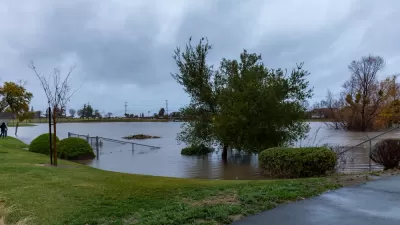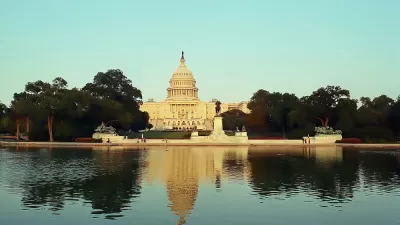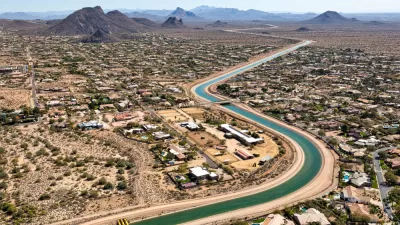Indian cities boast of huge GDP contributions, but cannot fulfill the basic needs of their citizens, such as providing safe drinking water. Central government funding has enabled some improvements in the urban water sector, but much more is needed.
In his article 'Managing our cities' waters', Mr. M Ramachandran, a former secretary with the Ministry of Urban Development in India, is both critical and hopeful about the country's urban water sector.
Citizens of India are deprived of access to drinking water, while at the same time about 50 percent of water put into distribution is lost and not billed for. This loss due to leakages, theft, defective meters or unbilled supply, exhibits the poor management of water utilities in Indian cities. It also gives a picture of ineffective local and state governments lacking in accountability and transparency.
Estimates show that about '45 million cubic metres of water are lost daily' - enough to supply 200 million people. Investments should be made in the area of repair and infrastructure upgrades to prevent leakage. One gets hopeful after seeing examples of cities like Nagpur and Surat that have piloted 24X7 water supply projects and institutionalized water reforms, respectively. Nagpur city is saving millions of rupees just by reducing transmission losses and enhancing pumping efficiency.
With planning for the mega-urban scheme of India, the JNNURM (Jawaharlal Nehru National Urban Renewal Mission), focusing on its next phase, there is much hope for the Indian urban water sector to focus on efficient water management. The focus must be to improve the existing infrastructure before proposing investment in new projects. Who knows, very soon, the distant dream of having a reliable 24X7 water supply might become a reality for the citizens in India.
Thanks to Kanak Tiwari
FULL STORY: M Ramachandran: Managing our cities' water

Alabama: Trump Terminates Settlements for Black Communities Harmed By Raw Sewage
Trump deemed the landmark civil rights agreement “illegal DEI and environmental justice policy.”

Planetizen Federal Action Tracker
A weekly monitor of how Trump’s orders and actions are impacting planners and planning in America.

Why Should We Subsidize Public Transportation?
Many public transit agencies face financial stress due to rising costs, declining fare revenue, and declining subsidies. Transit advocates must provide a strong business case for increasing public transit funding.

Understanding Road Diets
An explainer from Momentum highlights the advantages of reducing vehicle lanes in favor of more bike, transit, and pedestrian infrastructure.

New California Law Regulates Warehouse Pollution
A new law tightens building and emissions regulations for large distribution warehouses to mitigate air pollution and traffic in surrounding communities.

Phoenix Announces Opening Date for Light Rail Extension
The South Central extension will connect South Phoenix to downtown and other major hubs starting on June 7.
Urban Design for Planners 1: Software Tools
This six-course series explores essential urban design concepts using open source software and equips planners with the tools they need to participate fully in the urban design process.
Planning for Universal Design
Learn the tools for implementing Universal Design in planning regulations.
Caltrans
Smith Gee Studio
Institute for Housing and Urban Development Studies (IHS)
City of Grandview
Harvard GSD Executive Education
Toledo-Lucas County Plan Commissions
Salt Lake City
NYU Wagner Graduate School of Public Service





























